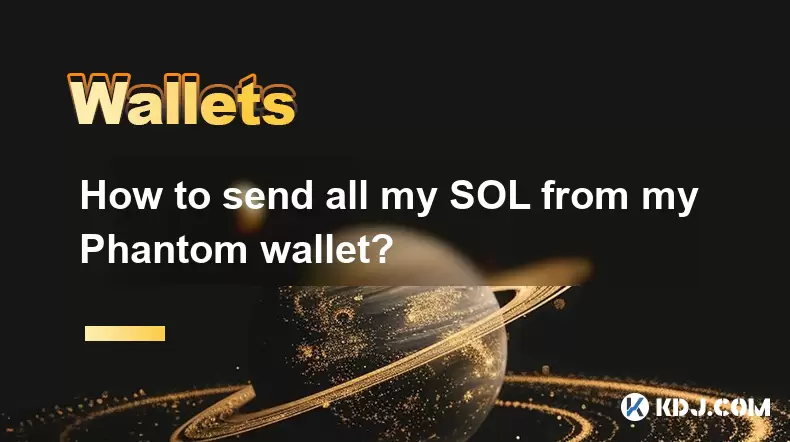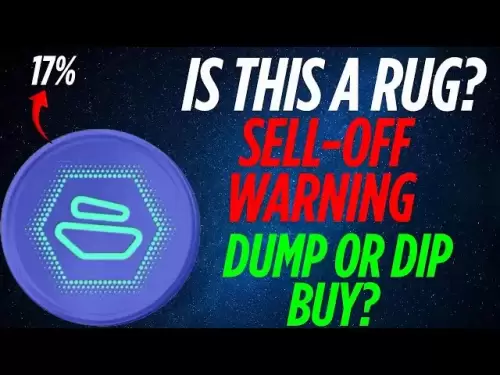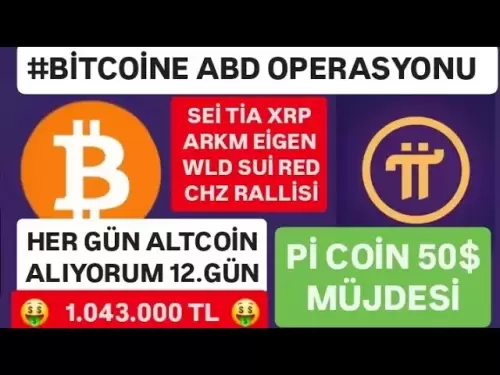-
 Bitcoin
Bitcoin $108,708.8110
0.60% -
 Ethereum
Ethereum $2,561.6057
1.91% -
 Tether USDt
Tether USDt $1.0001
-0.03% -
 XRP
XRP $2.2795
0.57% -
 BNB
BNB $662.2393
1.00% -
 Solana
Solana $153.1346
3.74% -
 USDC
USDC $1.0000
0.00% -
 TRON
TRON $0.2877
0.97% -
 Dogecoin
Dogecoin $0.1710
3.93% -
 Cardano
Cardano $0.5871
1.61% -
 Hyperliquid
Hyperliquid $39.6663
1.68% -
 Sui
Sui $2.9032
0.79% -
 Bitcoin Cash
Bitcoin Cash $496.1879
1.71% -
 Chainlink
Chainlink $13.5807
3.01% -
 UNUS SED LEO
UNUS SED LEO $9.0777
0.61% -
 Stellar
Stellar $0.2514
4.51% -
 Avalanche
Avalanche $18.1761
1.86% -
 Shiba Inu
Shiba Inu $0.0...01173
1.72% -
 Toncoin
Toncoin $2.8010
-4.23% -
 Hedera
Hedera $0.1594
3.21% -
 Litecoin
Litecoin $87.0257
-0.53% -
 Monero
Monero $319.1217
1.79% -
 Polkadot
Polkadot $3.3853
0.68% -
 Dai
Dai $0.9999
-0.01% -
 Ethena USDe
Ethena USDe $1.0003
0.02% -
 Bitget Token
Bitget Token $4.3420
-0.97% -
 Uniswap
Uniswap $7.3772
1.39% -
 Aave
Aave $286.6277
5.61% -
 Pepe
Pepe $0.0...09994
2.33% -
 Pi
Pi $0.4589
1.76%
How to set transaction fee priority in Binance Wallet?
Binance Wallet lets you indirectly prioritize transactions by adjusting fees; higher fees generally mean faster confirmation, but network congestion significantly impacts speed regardless of the fee chosen. Always double-check details before confirming.
Mar 23, 2025 at 04:14 pm

Key Points:
- Binance Wallet doesn't directly offer a "priority" setting for transaction fees like some other platforms. Instead, you control fee priority indirectly by adjusting the transaction fee amount itself.
- Higher fees generally result in faster transaction confirmation times.
- Network congestion significantly impacts transaction speeds regardless of your chosen fee.
- Understanding the different fee options (e.g., slow, average, fast) available on Binance Wallet is crucial for managing transaction speed and cost.
- Always double-check your transaction details before confirming to avoid errors and unnecessary fees.
How to Set Transaction Fee Priority in Binance Wallet (Indirectly):
Binance Wallet doesn't have a dedicated setting labeled "priority" for transaction fees. The speed of your transaction is primarily determined by the amount of the transaction fee you specify. This fee compensates miners for processing your transaction on the blockchain. A higher fee makes your transaction more attractive to miners, leading to faster processing. Therefore, effectively setting "priority" involves strategically choosing your transaction fee.
The fee options usually presented are relative and not absolute. Terms like "slow," "average," and "fast" are used to indicate fee levels, with "fast" generally being significantly higher. The actual speed depends heavily on the current network congestion. During periods of high network activity, even the "fastest" fee might result in slower confirmation times than usual.
Understanding Binance Wallet's Fee Structure:
When initiating a transaction within Binance Wallet, you'll be presented with a fee option. These options often include "low," "medium," and "high" or similar descriptors. These represent different fee amounts. Selecting a "high" fee increases the likelihood of faster confirmation because miners prioritize transactions with higher fees. Choosing a "low" fee will reduce your costs, but it might significantly increase your waiting time for confirmation.
The exact fee structure varies depending on the cryptocurrency you are using. Each cryptocurrency has its own network fees and miner incentives. Some cryptocurrencies have higher base fees than others, impacting the minimum fee you can set. Always check the suggested fee before confirming your transaction. Binance Wallet will typically provide an estimated confirmation time based on your selected fee and current network conditions.
Steps to Adjust Transaction Fees (and thereby Priority):
- Initiate a transaction: Begin the process of sending your cryptocurrency from your Binance Wallet.
- Review the fee options: Carefully examine the available fee options. The descriptions will provide a general indication of the transaction speed associated with each fee level.
- Adjust the fee amount (if possible): Some transactions may allow manual fee adjustment. If so, increase the fee if you need faster confirmation. Remember that increasing the fee does not guarantee instantaneous confirmation, particularly during periods of network congestion.
- Confirm the transaction: After reviewing all details, including the transaction fee and recipient address, double-check everything before confirming your transaction.
Network Congestion's Impact:
Network congestion is a major factor affecting transaction speeds, regardless of the fee you set. When the network is busy (many transactions are being processed simultaneously), even the highest fees may not guarantee immediate confirmation. Transaction speeds are directly influenced by the number of transactions competing for processing.
This congestion is a fundamental characteristic of blockchain technology and is independent of Binance Wallet's fee structure. It is crucial to understand that Binance Wallet only facilitates the transaction; it doesn't control the blockchain's processing speed. High network activity can delay even high-fee transactions.
Frequently Asked Questions:
Q: What happens if I choose a very low transaction fee?
A: Choosing a very low fee may result in significantly delayed confirmation or even the transaction being rejected entirely by the network. Miners prioritize transactions with higher fees, so your transaction might remain unprocessed for a prolonged period, potentially for days or even weeks depending on the network congestion.
Q: Can I speed up a transaction after it's already been submitted?
A: No, once a transaction is submitted, you cannot directly increase its fee to speed up its confirmation. The fee is set at the time of submission.
Q: Are there any guaranteed methods to ensure fast transaction confirmations?
A: There's no guaranteed method. While setting a higher fee significantly increases the likelihood of faster confirmation, network congestion remains a significant variable outside of your control.
Q: What should I do if my transaction is pending for a long time?
A: If your transaction is pending for an unusually long time, monitor the network status of the specific cryptocurrency you're using. High network congestion is the most common reason. You may also need to contact Binance support for assistance if the issue persists.
Q: Does Binance Wallet charge additional fees besides the network fees?
A: Binance Wallet itself doesn't usually charge extra fees beyond the network transaction fees. However, always double-check the transaction details to ensure you understand all associated costs before confirmation.
Disclaimer:info@kdj.com
The information provided is not trading advice. kdj.com does not assume any responsibility for any investments made based on the information provided in this article. Cryptocurrencies are highly volatile and it is highly recommended that you invest with caution after thorough research!
If you believe that the content used on this website infringes your copyright, please contact us immediately (info@kdj.com) and we will delete it promptly.
- Ripple, XRP, and AI Tokens: Is Ruvi AI the Next Big Thing?
- 2025-07-08 05:30:12
- Crypto Investment: BlockDAG, Litecoin, and the Solana Meme Coin Mania
- 2025-07-08 06:10:12
- Altcoins in Focus: BlockDAG, Litecoin, and the Shifting Crypto Landscape
- 2025-07-08 05:35:12
- BNB's Bullish Breakout: Riding the $600 Support Level Wave
- 2025-07-08 04:55:13
- Solana ETF on Hold: SEC Delay and Crypto Regulation Scrutiny
- 2025-07-08 06:10:12
- Altcoin, Date, Price: Navigating the Crypto Bill & Meme Coin Mania
- 2025-07-08 06:15:12
Related knowledge

How to cancel a pending transaction in Phantom wallet?
Jul 03,2025 at 07:21pm
Understanding Pending Transactions in Phantom WalletA pending transaction in the Phantom wallet occurs when a user initiates a transfer or interaction with the Solana blockchain, but it hasn't yet been confirmed by the network. This can happen due to various reasons such as low transaction fees, network congestion, or incorrect gas settings. It's import...

How to see the estimated value of my tokens in Phantom wallet?
Jul 04,2025 at 12:21am
What is Phantom Wallet?Phantom wallet is one of the most popular cryptocurrency wallets designed for the Solana blockchain. It allows users to store, send, receive, and manage various tokens built on Solana, including SPL tokens and NFTs. The wallet offers a user-friendly interface, making it accessible for both beginners and advanced users in the crypt...

How to lock my Phantom wallet extension?
Jul 03,2025 at 11:14am
What Is the Phantom Wallet and Why Lock It?The Phantom wallet is a popular non-custodial cryptocurrency wallet designed for interacting with the Solana blockchain. Supporting both browser extensions and mobile apps, Phantom allows users to store, send, receive, and stake SOL tokens, as well as interact with decentralized applications (dApps). Securing y...

Does Phantom wallet offer two-factor authentication (2FA)?
Jul 03,2025 at 09:00am
Understanding Phantom Wallet and Its Security FeaturesPhantom wallet is a widely used non-custodial cryptocurrency wallet that supports the Solana blockchain. It allows users to store, send, receive, and interact with decentralized applications (dApps) seamlessly. As security is a top priority for any crypto wallet user, security features like two-facto...

How to send all my SOL from my Phantom wallet?
Jul 06,2025 at 10:00am
Preparing to Send SOL from Your Phantom WalletBefore initiating any transaction, it is crucial to ensure that your Phantom wallet is fully set up and connected to the correct network. Phantom supports multiple networks, but for sending SOL, you must be on the Solana blockchain. Confirm this by checking the network indicator in the top-right corner of th...

What is "rent" on Solana and how does it affect my Phantom wallet?
Jul 02,2025 at 08:35pm
Understanding 'Rent' on SolanaIn the context of Solana, the term 'rent' refers to a storage fee that users pay for maintaining data on the blockchain. Unlike Ethereum, where storage costs are paid once via gas fees during contract deployment, Solana implements a recurring cost model to ensure efficient usage of network resources. This means that any acc...

How to cancel a pending transaction in Phantom wallet?
Jul 03,2025 at 07:21pm
Understanding Pending Transactions in Phantom WalletA pending transaction in the Phantom wallet occurs when a user initiates a transfer or interaction with the Solana blockchain, but it hasn't yet been confirmed by the network. This can happen due to various reasons such as low transaction fees, network congestion, or incorrect gas settings. It's import...

How to see the estimated value of my tokens in Phantom wallet?
Jul 04,2025 at 12:21am
What is Phantom Wallet?Phantom wallet is one of the most popular cryptocurrency wallets designed for the Solana blockchain. It allows users to store, send, receive, and manage various tokens built on Solana, including SPL tokens and NFTs. The wallet offers a user-friendly interface, making it accessible for both beginners and advanced users in the crypt...

How to lock my Phantom wallet extension?
Jul 03,2025 at 11:14am
What Is the Phantom Wallet and Why Lock It?The Phantom wallet is a popular non-custodial cryptocurrency wallet designed for interacting with the Solana blockchain. Supporting both browser extensions and mobile apps, Phantom allows users to store, send, receive, and stake SOL tokens, as well as interact with decentralized applications (dApps). Securing y...

Does Phantom wallet offer two-factor authentication (2FA)?
Jul 03,2025 at 09:00am
Understanding Phantom Wallet and Its Security FeaturesPhantom wallet is a widely used non-custodial cryptocurrency wallet that supports the Solana blockchain. It allows users to store, send, receive, and interact with decentralized applications (dApps) seamlessly. As security is a top priority for any crypto wallet user, security features like two-facto...

How to send all my SOL from my Phantom wallet?
Jul 06,2025 at 10:00am
Preparing to Send SOL from Your Phantom WalletBefore initiating any transaction, it is crucial to ensure that your Phantom wallet is fully set up and connected to the correct network. Phantom supports multiple networks, but for sending SOL, you must be on the Solana blockchain. Confirm this by checking the network indicator in the top-right corner of th...

What is "rent" on Solana and how does it affect my Phantom wallet?
Jul 02,2025 at 08:35pm
Understanding 'Rent' on SolanaIn the context of Solana, the term 'rent' refers to a storage fee that users pay for maintaining data on the blockchain. Unlike Ethereum, where storage costs are paid once via gas fees during contract deployment, Solana implements a recurring cost model to ensure efficient usage of network resources. This means that any acc...
See all articles

























































































